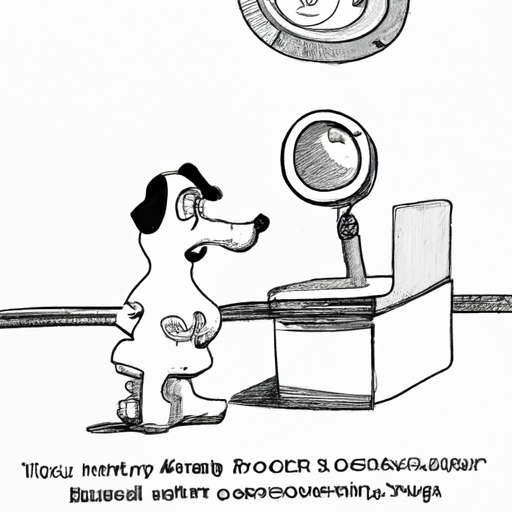Introduction
You’re a caregiver, a caretaker. You cherish your role as a pet parent, and your furry friend relies on you for their well-being. One common health issue that dogs face is a urinary tract infection (UTI). Understanding the causes can help you prevent this painful condition and keep your dog healthy and happy.
1. Understanding Canine UTIs
Just as humans do, dogs can get UTIs. This is an infection that affects any part of the urinary system, which includes the kidneys, bladder, ureters, and urethra. Symptoms might include frequent urination, difficulty urinating, and blood in the urine.
Causes of UTIs in Dogs
Various factors can contribute to a UTI in dogs:
-
Bacterial Infections: The most common cause of UTIs in dogs is bacteria that enter the urinary tract, typically through the urethra and then travel upstream into the bladder.
-
Bladder Stones: These hard collections of minerals can form in the bladder and cause an infection.
-
Diabetes: Dogs with diabetes are more susceptible to UTIs because the disease weakens the immune system, making it harder for your dog’s body to fight off infections.
-
Age: Older dogs are more prone to UTIs because their immune systems are not as strong as they used to be.
-
Sex: Female dogs are more likely to get UTIs because their urethra is shorter and wider, making it easier for bacteria to enter the bladder.
2. Preventing UTIs in Dogs
Now that you understand the causes, let’s dive into some preventative measures.
-
Keep Your Dog Hydrated: Regular water intake can help flush out bacteria from your dog’s urinary tract.
-
Regular Bathroom Breaks: Frequent urination helps eliminate bacteria before it can cause an infection.
-
Healthy Diet: A balanced diet can boost your dog’s immune system and help prevent infections.
-
Regular Vet Check-ups: Routine veterinary care can catch potential issues before they become serious.
3. Treating UTIs in Dogs
If you suspect your dog has a UTI, it’s essential to get a diagnosis from a vet. Treatment typically involves antibiotics to kill the bacteria causing the infection. It’s important to complete the full course of antibiotics, even if your dog seems better, to ensure the infection is fully cleared.
4. The Impact of UTIs on Your Dog’s Health
A UTI can cause discomfort and pain for your dog. If left untreated, it could lead to more serious complications such as kidney damage. Therefore, understanding the causes and taking preventative measures is crucial for your dog’s overall health.
5. Frequently Asked Questions (FAQs)
Q: What are the symptoms of a UTI in dogs?
A: Symptoms include frequent urination, difficulty urinating, and blood in the urine.
Q: How can I prevent my dog from getting a UTI?
A: Keep your dog hydrated, ensure regular bathroom breaks, maintain a healthy diet, and have regular vet check-ups.
Q: How is a UTI treated in dogs?
A: UTIs are typically treated with antibiotics prescribed by a vet.
Q: Can a UTI harm my dog’s health?
A: If untreated, a UTI can lead to more serious complications such as kidney damage.
As a caregiver, your dog’s health is in your hands. By understanding what causes UTIs, you can take steps to prevent this painful condition and ensure your furry friend remains healthy and happy.



